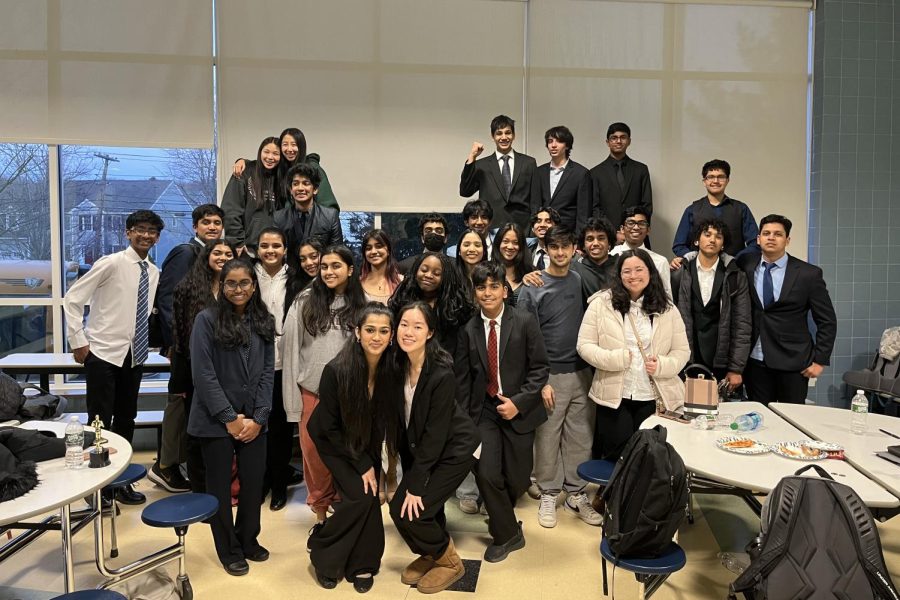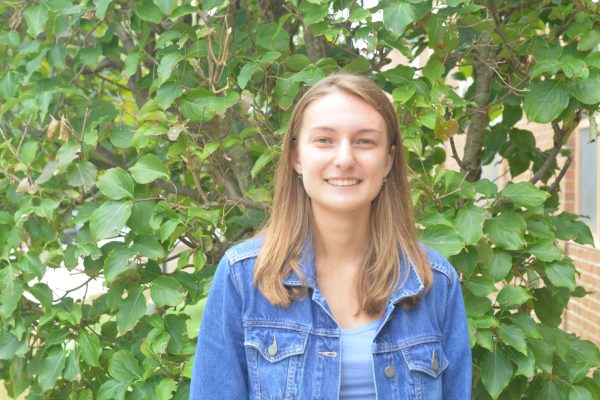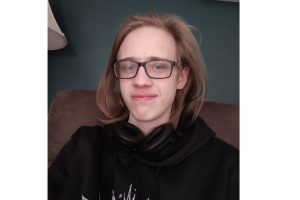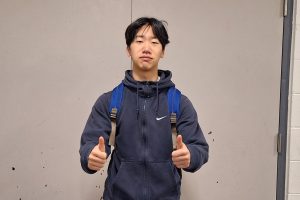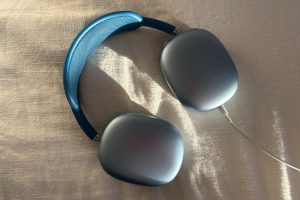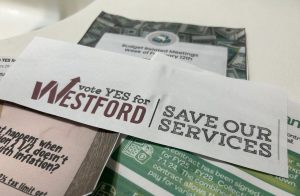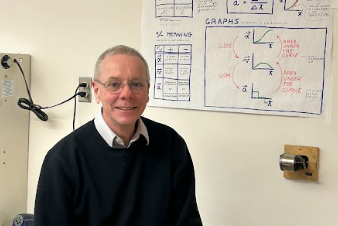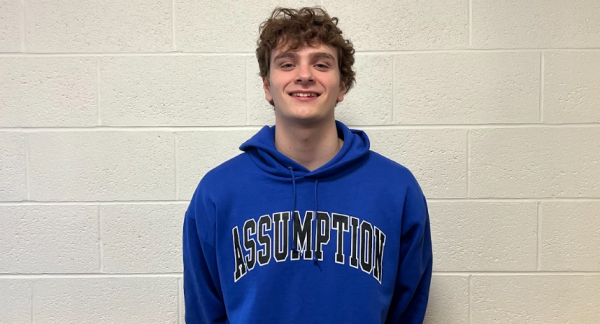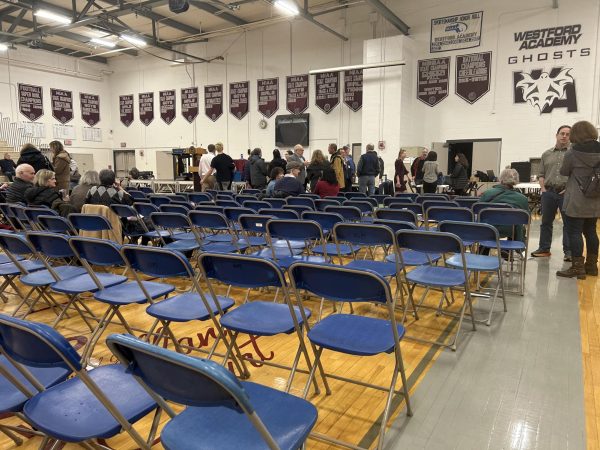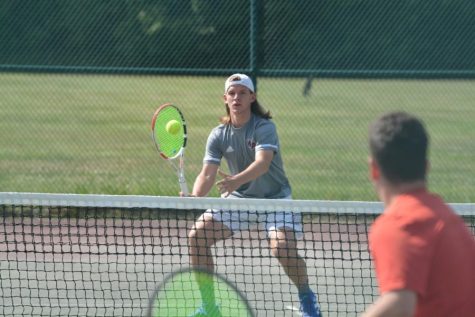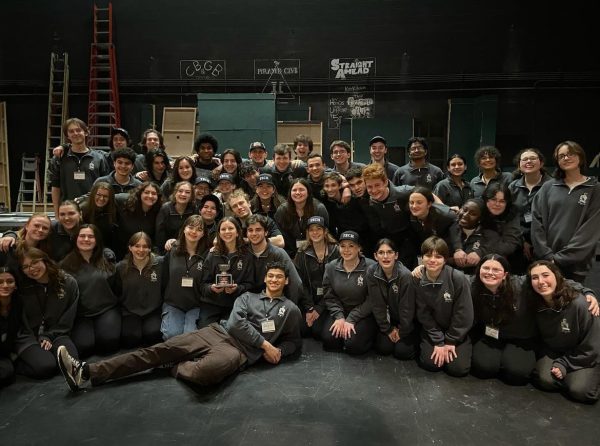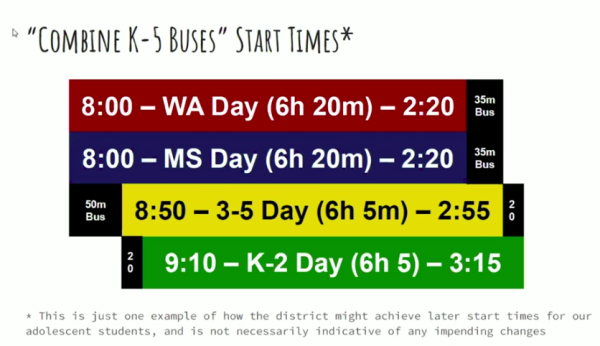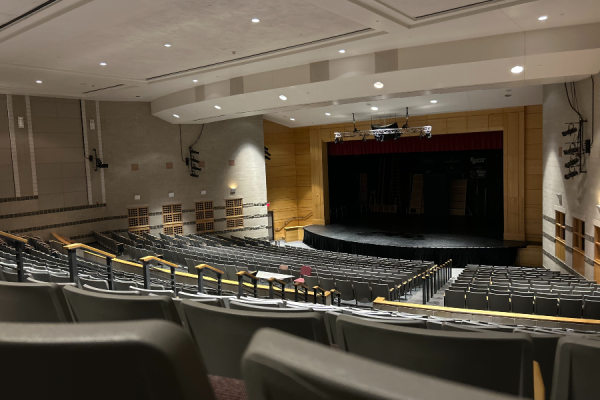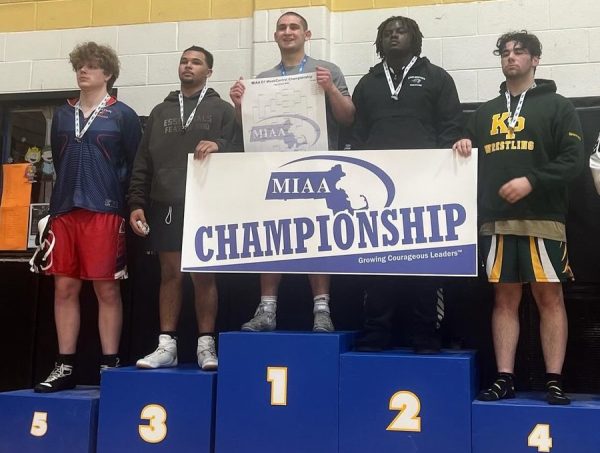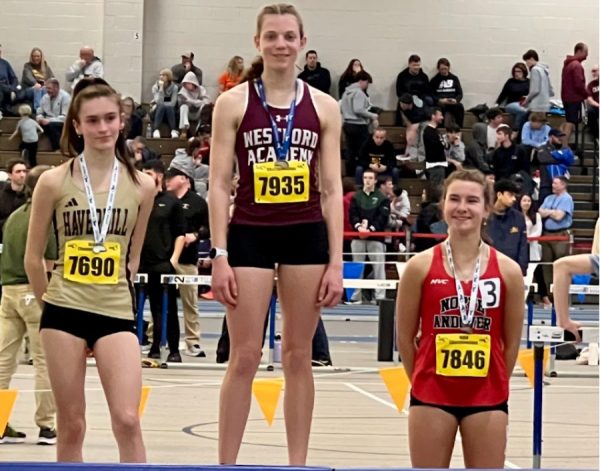Speech and Debate attend in-person state tournaments; first time since COVID
A most recent photo of the Speech and Debate team in the lead up to the state tournaments at the Needham March Merryness Tournament on March 18.
April 4, 2023
The Speech and Debate team went to their first in-person state tournaments since the pandemic started, with the Debate State Tournament on Saturday, March 25 at Acton-Boxborough High School and the Speech State Tournament the following Saturday, April. 1 in Chelmsford. During the debates, junior captain Angela Wang was ranked seventh best speaker in the Varsity Lincoln-Douglas (LD) competition, or one versus one debate. Junior Raunak Kothari also placed 10th in the novice Public Forum (PF) competition, which is team debating. In the speech state tournament, sophomore Catherine Zhu placed 2nd in the group discussion, which is where students voice their opinions on a topic.
This year, the speech and debate team is proud of how far they have gotten, considering the large number of people able to qualify and make it far into the octo-final rounds in the debates. Compared to past years, the overall participation in the club has also grown, especially the debate aspect.
“I think specifically for debate, [our team] has definitely expanded throughout the past few years […] and I think our team did overall really well with the amount of people that we were able to send,” Wang said. “The Public Forum teams [also did] really well, [as well as our] sophomore LD debater [Abhinav Sharma] who made it to octo-finals, [which was his first time placing].”
What made this year’s state tournaments unique to past years was that they were in-person. For younger club members who did previous state tournaments online, this format was a welcome opportunity to experience the process fully and interact with other competitors and judges.
“It was just a completely different experience because we had to dedicate our entire Saturdays from 6:30 in the morning to getting home at eight or nine at night after tournaments,” Wang said. “But it’s also a lot more fun because we get to be with real people and we get the actual tournament experience.”
In addition to that, this year the club had a middle school student, eighth grader Madhurika Sivakumar, qualify for the state debates for the first time. According to club advisor Scott Cruikshank, this is a testament to the club’s continued efforts to encourage more people to join through the newly formed Speech and Debate club at Blanchard Middle School.
“They have made a real effort this year to incorporate middle schoolers in many of the tournaments,” Cruikshank said. “The goal of this group is to spark an interest early on with middle school students and to introduce them to this dynamic club, with hopes that they will want to continue their work with Speech and Debate once they come to WA. ”
At the state tournaments, the debaters and speakers were assigned one topic that would be used throughout the event. For the debates, the topic was the expansion of the Supreme Court, while the topic for the speakers was the environment and climate change. To prepare, all participants had to spend a considerable time researching their topics together beforehand and practice speaking front of people.
“Both [speech and debate] will improve your public speaking skills,” Wang said. “Depending on the event, but especially with the group discussion and debate, you also learn about a lot of real world issues through research, so we do a lot of research heavy things inside Speech and Debate.”
Though the fields of speech and debate fall into the same club, there are key differences between the two. According to senior captain Arsh Sharma, while the debaters debated in the same format, speakers had the option to do prepared speech, impromptu, and group discussion among other competition choices.
“One of the key differences [between speech and debate] is that [speech] is a lot more diverse and you have more options,” Sharma said. “With debate, I think it’s more rigorous in the sense that it requires a lot more preparation.”
At these tournaments, all of the rounds, starting from the preliminary rounds up to the finals, which determined the winner, took place on the same day. According to Wang, each round was judged by a parent whose child is competing. Though the judging can go either way, the debaters and speakers made sure to present themselves in a way that would lead to the best outcome.
“One way to maximize your chances is to speak well and definitely present yourself well, which is the fundamental before how good your arguments are to make sure you can appeal to the judge,” Wang said.
In order to qualify, the speakers had to earn at least two bids at the local level, which is when they rank at least ninth place in two local tournaments. The debaters needed to have maintained a positive record, or more wins than losses, in a tournament.
“It’s definitely giving incentive to these members to come to the local tournaments […] in order to qualify and put their best foot forward to prepare, come to club meetings, do practice rounds, and research documents,” Wang said. “Doing well in states is a big achievement […] and I think a lot of our club members recognize that.”
However, the main takeaway they hoped club members would acquire is better public speaking skills, which is something they strive for as a club. The captains also hoped team members were able to enjoy the experience of going to such a big tournament and gain confidence because of it.
“A lot of our competitors are seniors, […] so this is our last tournament ever. Regardless of the results, I just hope everyone had a good experience [since] this is the first time people are really getting to get the feel of what a tournament is like, especially states because the energy is so different,” Sharma said.
Though the state tournaments are a wrap-up for the Speech and Debate season, the club will continue to practice their public speaking and do other team bonding activities. Although they will not be going to nationals this year, the student-run club hopes to change this in the future.
“We’ve never really [gone] before because we are a fully student-run club, and nationals require things like a lot of funding, transportation, booking hotels, and parent chaperones to come along,” Wang said. “But it would definitely expand the scope of our [club] if we were able to attend such a prestigious tournament. Next year I definitely plan on working toward more fundraising and working with administration to be able to achieve this.”

